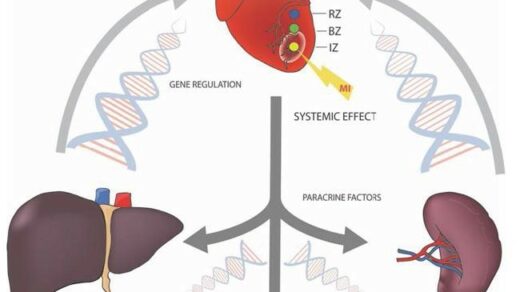Researchers compared vitamin D binding protein expression in papillary thyroid cancer tissues among Filipino American and European American patients.

The Trending with Impact series highlights Oncotarget publications attracting higher visibility among readers around the world online, in the news, and on social media—beyond normal readership levels. Look for future science news about the latest trending publications here, and at Oncotarget.com.
—
On the basis of ethnicity, variants of the vitamin D binding protein (DBP) gene are expressed among different populations of people around the world. Little is known about this highly polymorphic protein, though, researchers do know that DBP functions dependently and independently of vitamin D. Many previous research studies have examined the vitamin D-dependent correlation between DBP and cancer, however, few studies have examined DBP’s functionality independent of vitamin D, especially regarding the role of DBP expression in thyroid cancer.
“Thyroid cancer incidence, recurrence, and death rates are higher among Filipino Americans than European Americans.”
Filipino Americans are disproportionately affected by thyroid cancer, and researchers from Harbor-UCLA Medical Center, Loma Linda University School of Medicine, and Riverside University Health System conducted a study published in Oncotarget’s Volume 12, Issue #7, entitled, “Differential expression of Vitamin D binding protein in thyroid cancer health disparities.” The researchers compared the expression of DBP in thyroid cancer in Filipino and European Americans. The goal of this research was to further elucidate the functional implications of DBP in different stages of thyroid cancer across ethnicities.
“Although DBP is an essential protein with multifunctional properties, [28, 41–47], very few studies are available on its contribution to thyroid cancer oncogenesis.”
The Study
To determine the correlation between differential DBP expression in tumor tissues and cancer staging among Filipino Americans and European Americans, the researchers gathered 200 archival papillary thyroid tissues; 100 from Filipino Americans and 100 from European Americans. They used immunohistochemistry to assay DBP expression in each sample and then analyzed the data with confocal microscopy.
“Since DBP gene variants showed differential expression across ethnicities [25, 40, 48, 49], DBP level in the tumor microenvironment may implicate the difference in TC [thyroid cancer] prognosis between Filipino and European Americans.”
First, the team evaluated whether or not there was any relationship between their DBP staining results and age, gender, or body mass index of the patients. They found no correlation between DBP levels and any of these variables, in either ethnicity. The researchers then analyzed the immunohistochemistry DBP staining results by ethnicity. They found moderate to strong intensity DBP staining across the European American cancer tissues and significantly low to no DBP staining in the Filipino American cancer tissues. The researchers also determined an inverse relationship between DBP expression and cancer stage—the lower the DBP expression, the poorer the prognosis.
“These data implied that DBP’s presence might play protective roles in cancer progression in European Americans compared to Filipino Americans, supporting the aggressive phenotype observed in Filipino Americans.”
Next, to observe the effects on cell migration and proliferation, DBP knockdown and overexpression (almost 90%) was achieved in the papillary thyroid tumor cells. The researchers demonstrated increased cancer cell proliferation and migration after the knockdown of the DBP gene. When the researchers overexpressed DBP, they observed a significant reduction in papillary thyroid cancer cell proliferation and migration.
Conclusion
“In conclusion, we demonstrate that the presence or absence of DBP inversely correlates to thyroid cancer staging in two ethnicities.”
The researchers note that while this study demonstrated low vitamin D binding protein expression in the advanced thyroid tumors of Filipino Americans, they acknowledge the need to determine the progressive loss of DBP throughout the stages of thyroid cancer.
“A future study is underway to determine the DBP regulation and its downstream pathways to elucidate strategies to eliminate the observed thyroid cancer health disparities.”
Click here to read the full scientific study, published in Oncotarget.
—
Oncotarget is a unique platform designed to house scientific studies in a journal format that is available for anyone to read—without a paywall making access more difficult. This means information that has the potential to benefit our societies from the inside out can be shared with friends, neighbors, colleagues, and other researchers, far and wide.

For media inquiries, please contact media@impactjournals.com.



